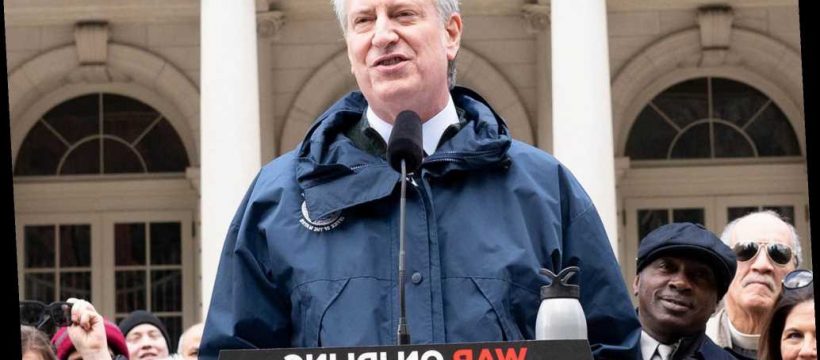Well-connected lobbyists made a killing in 2019 wooing City Hall and the City Council on an everything-but-the-kitchen-sink list of issues, raking in a cumulative $113.19 million, according to a new report by the City Clerk.
That eye-popping total represents a 10-percent hike from what the scale-tippers pulled down in 2018, underscoring just how loudly money talks in the political arena, watchdogs said.
“The increase in spending shows the well-heeled can spend for a megaphone compared to the average New Yorker, who speaks with a whisper,” said Blair Horner, of the New York Public Interest Research Group.
“It must be working or they wouldn’t be spending more dough on lobbying.”
Tops on the list for the third year running was Suri Kasirer’s firm, Kasirer LLC, which pocketed $14.3 million from its more than 200 clients, the report found.
Her sizable stable includes: PETA, which seeks better treatment for carriage horses and backs a proposed ban on furs; Tobacco Free Kids and the Cancer Society, which supported a ban on flavored e-cigarettes; NY1 owner Charter Communications, whose franchise needs to be renewed by the city; Uber, which is fighting city proposals to cap trips; and the consortium that sought to redevelop the area in Long Island City for the aborted Amazon campus.
“It’s not my first rodeo,” said Kasirer, who has built inroads with Mayor Bill de Blasio — plus Mayors Michael Bloomberg and Rudy Giuliani before him — as well as City Council Speaker Corey Johnson, who is widely considered a frontrunner to become the city’s next mayor.
“You have to build coalitions in both the council and the administration.”
The second-highest compensated firm was James Capalino & Associates, which earned $11.9 million in 2019.
Like Kasirer, Capalino also has decades-long ties to de Blasio and others in city government, and a diverse roster of clients that includes the Staten Island Mall, the Archdiocese of New York, vaping giant Juul Labs, Macy’s, New York University, UPS and more.
One of Kasirer’s clients, the pro-animal rights, anti-horse carriage group New Yorkers for Clean, Livable and Safe Streets — or NYCLASS — agreed in 2018 to pay state run-watchdog the Joint Commission on Public Ethics a $10,000 fine to settle allegations of lobbying-act violations after donating $75,000 to the Campaign for One New York, a de Blasio-controlled advocacy group.
In the same year, Capalino paid a $40,000 fine to JCOPE to settle accusations of lobbying violations, admitting he personally contributed $10,000 to de Blasio’s CONY and secured another $90,000 in contributions from nine clients who retained him to lobby the city, the mayor and his senior staff.
The Bolton – St. John’s firm came in a distant third in the city clerk’s report, earning $5.6 million in 2019.
With respect to outgoing funds, the parent company of RJ Reynolds Tobacco — RAI Services — had the biggest lobbying stable, paying seven different firms in its fight against legislation to ban menthol cigarettes.
But real estate and development remains the bread and butter of the lobbying industry, accounting for 40 percent of all compensation, the report noted.
The developer of a project to build a 13-tower mixed-use project along Flushing Creek in Queens — the FWRA consortium — paid over $1 million in lobbying bills as it seeks to win city approval to rezone the area, the most paid by any one client last year.
Capalino is one of the consortium’s lobbyists.
“It begs the question of whether the public interest is being served or whether special interests have too much influence by hiring experts,” said Alexander Camarda, of watchdog group Reinvent Albany.
While his since-disbanded CONY group was under investigation, de Blasio said he would restrict directly meeting with lobbyists, a stance that City Hall said he maintains.
“The mayor does not meet with any lobbyists-for-hire,” said mayoral spokeswoman Freddi Goldstein.
Johnson — who has publicly said that he would reject special-interest money in his City Hall run — did not immediately respond to a request for comment.
Additional reporting by Rich Calder and Aaron Feis
Source: Read Full Article
